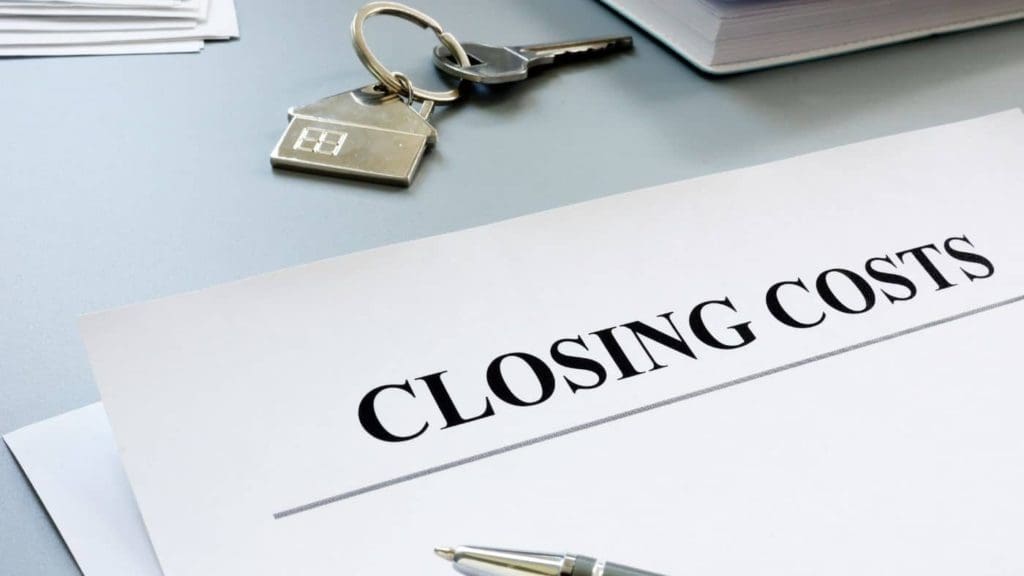Are you a new home buyer in Canada, feeling overwhelmed by the home-buying process? Fear not! We’ve compiled this comprehensive guide to help you navigate the journey to homeownership. From assessing your financial readiness to exploring government incentives and maximizing energy efficiency, we’ve got you covered. So let’s dive in and make your dream of owning a home a reality!
Short Summary
Assess financial readiness, and understand mortgage options and government programs to make an informed decision.
Define needs and wants, work with a realtor, and obtain pre-approval for a mortgage.
Plan for future expenses, including closing costs & energy efficiency measures to reduce utility bills.
1) Assessing Your Financial Readiness

Before venturing into the homeownership world, assessing your financial readiness is crucial. This includes ensuring a steady income, maintaining a healthy credit score, and saving for a down payment.
It’s important to have a good understanding of your financial situation before taking on a financial advisor’s responsibility.
Steady Income
A stable income is essential when purchasing a house to cover mortgage payments, bills, and unexpected repairs. The minimum income required to purchase a house in Canada varies depending on the location and the cost of the dwelling. In major urban areas such as Toronto, a gross household income of over $200,000 may be required, while in other cities such as Ottawa, the income requirement may be lower.
Consulting a mortgage professional is crucial to determine the precise income requirement for the desired location and home price.
Credit Score
Maintaining a good credit score is vital for securing better mortgage rates and terms. To ensure a high credit score, pay bills on time, maintain low credit card balances, and avoid taking out too many loans or opening too many credit cards.
A favourable credit score helps you obtain advantageous mortgage rates and terms and gives you access to other types of loans, making it an essential aspect of home buying.
Down Payment Savings
Saving for a down payment is a crucial part of the home-buying process. The minimum down payment requirement in Canada is 5% of the home’s purchase price, which will affect your monthly mortgage payments. You can acquire a down payment by:
Consistently setting aside funds each month
Utilizing the Home Buyer’s Plan to withdraw up to $35,000 from your RRSP tax-free
Exploring other potential sources, such as a gift from a family member.
If your down payment is less than 20% of the home’s purchase price, you’ll have to pay for mortgage default insurance. To minimize your financial burden, it’s advisable to save for a larger down payment if possible. The larger your down payment, the smaller your mortgage and the lower your monthly mortgage carrying costs.
It’s also essential to budget for closing costs, which typically range from 1.5% to 4% of the home’s purchase price. These costs may include:
Legal fees
Land transfer tax
Appraisal fees
Home inspection fees
2) Understanding Mortgage Options

Mortgages come in various forms, and understanding their features is crucial for making an informed decision that meets your needs. There are:
Fixed-rate mortgages
Variable-rate mortgages
Open mortgages
Closed mortgages
Conventional mortgages
High-ratio mortgages
Familiarizing yourself with these options can help you identify the most competitive mortgage rate, potentially saving you a significant amount in interest over the course of the mortgage.
Comparing different mortgage products can be time-consuming, but it is worth the effort. Research.
Fixed vs. Variable Rate Mortgages
Fixed-rate mortgages offer a reliable and predictable rate, as the interest rate remains constant over the duration of the mortgage, resulting in a fixed monthly payment. Many Canadians opt for fixed-rate mortgages due to the security they provide.
On the other hand, variable-rate mortgages have fluctuating interest rates, resulting in varying monthly payments. While they may present potential savings, they also come with a greater degree of risk.
The choice between fixed and variable-rate mortgages ultimately depends on your personal financial situation and risk tolerance.
Open vs. Closed Mortgages
Open mortgages provide the flexibility to make partial or full prepayments without incurring additional costs, making them an attractive option for borrowers with extra funds who want to expedite repayment of their mortgage. However, open mortgages typically have higher interest rates compared to closed mortgages.
On the other hand, closed mortgages cannot be prepaid, renegotiated, or refinanced before maturity except in accordance with their specified terms. They generally offer lower interest rates than open mortgages, making them a popular choice for those prioritizing lower monthly payments.
Conventional vs. High-Ratio Mortgages
Conventional mortgages require a down payment of at least 20% of the purchase price or appraised value of the property, while high-ratio mortgages require a down payment of less than 20% and necessitate mortgage default insurance. Choosing between a conventional and a high-ratio mortgage depends on your financial situation and your ability to save for a larger down payment.
Keep in mind that a larger down payment reduces your mortgage carrying costs and may save you money in the long run.
3) Government Programs and Incentives

As a first-time home buyer in Canada, you can take advantage of various government programs and incentives, such as the First-Time Home Buyer Incentive, Home Buyers’ Plan, and First Home Savings Account. These programs are designed to make homeownership more achievable and affordable for first-time buyers.
With the First-Time Home Buyer Incentive, the federal government will provide a shared equity mortgage for eligible first-time homebuyers, including those with a common-law partner, to help reduce their monthly mortgage payments.
First-Time Home Buyer Incentive
The First-Time Home Buyer Incentive is a shared equity mortgage program that facilitates first-time buyers in reducing their monthly payments through an interest-free loan from the government. The eligibility criteria for the incentive include a maximum qualifying annual income of $120,000, a maximum total borrowing amount of 4.0 times their qualifying income, and a minimum down payment of 5%.
The land transfer tax rebate can be a valuable incentive for first-time home buyers looking to lower their mortgage carrying costs and purchase a more affordable home.
Home Buyers’ Plan (HBP)
The Home Buyers’ Plan (HBP) allows first-time home buyers to withdraw up to ,000 from their RRSPs tax-free for a down payment on their home. This plan is particularly tailored to first-time home buyers, but it’s also available to individuals who have not occupied a home that they or their family own.
It’s an excellent way to utilize your registered retirement savings plan for homeownership and reduce the financial burden of a down payment.
First Home Savings Account (FHSA)
The First Home Savings Account (FHSA) is a tax-free savings option specifically designed for first-time home buyers. With a yearly contribution limit of $8,000, account holders can access the funds in their accounts upon agreeing to purchase a home.
This savings account is a valuable tool for first-time buyers looking to save money for their down payment and home-buying costs in a tax-free environment.
4) Preparing for the Home Search

Once you’ve assessed your financial readiness, explored mortgage options, and tapped into government incentives, it’s time to prepare for the home search. This involves defining your needs and wants for your future home, working with a realtor, and utilizing online resources to research neighbourhoods and compare properties.
When defining your needs and wants, consider factors such as the size of the home, the number of bedrooms, and the number of bathrooms.
Defining Your Needs and Wants

Before embarking on your home search, creating a list of must-haves and nice-to-haves for your future home is essential. Must-haves are features that are essential for your home, such as a certain number of bedrooms or a certain size kitchen, while nice-to-haves are features that would be desirable but not essential.
Consider your lifestyle, budget, and future plans when determining your priorities, and be prepared to compromise on less essential features if necessary.
Working with a Realtor
Partnering with a realtor can provide invaluable assistance throughout the home-buying process. Realtors offer:
In-depth knowledge of the real estate market
Access to properties
Support with negotiations
Help with paperwork processing
Cost savings
When selecting a real estate agent, it’s advisable to interview multiple agents and choose one with commendable credentials and recommendations.
Utilizing Online Resources
In today’s digital age, a wealth of online resources are available to help you research neighbourhoods, compare properties, and stay informed about market trends. Websites such as Zillow, Realtor.ca, and Google Maps can provide valuable insight into local amenities, crime rates, school evaluations, and median house prices.
By leveraging these resources, you’ll be better equipped to make informed decisions when searching for your perfect home.
5) Securing Mortgage Pre-Approval
Securing mortgage pre-approval is a crucial step in the home-buying process. By obtaining pre-approval, you can ascertain the amount you qualify for, allowing you to search for a home that fits your budget. This helps you understand your borrowing capacity and demonstrates to sellers that you’re a serious buyer.
It’s recommended to commence the house-hunting process after obtaining mortgage pre-approval and having a substantial down payment saved.
6) Navigating the Home-Buying Process
As you embark on your home-buying journey, it’s important to be aware of the various stages involved. This includes making an offer on the house, scheduling a home inspection, and budgeting for closing costs.
Understanding each step of the process can alleviate stress and ensure a smooth transition to homeownership.
Making an Offer
Submitting a competitive offer is a crucial step in the home-buying process. To make an offer, you’ll need to:
Submit an offer to purchase
Pay a deposit
Arrange mortgage financing
Schedule a home inspection.
Your realtor can provide valuable guidance and advice during this stage, helping you submit an attractive offer that stands out to the seller.
Home Inspection
Scheduling a home inspection is essential for identifying potential issues before finalizing the purchase. A home inspection in Canada typically costs between $300 and $500 and involves an impartial visual examination of a property’s structure and main systems by a competent home inspector.
By uncovering any hidden issues with the newly constructed home, you can avoid costly surprises down the road.
Closing Costs

Finally, it’s important to budget for closing costs, which typically range from 1.5% to 4% of the home’s purchase price. These costs may include:
Legal fees
Land transfer taxes
Appraisal fees
Home inspection fees
It’s crucial to be aware of these expenses and factor them into your overall budget when purchasing a home.
7) Planning for Future Expenses
Owning a home comes with its fair share of future expenses. Be prepared for costs such as home maintenance, repairs, potential interest rate increases, and your home’s purchase price.
Setting aside funds for unexpected occurrences can help alleviate financial stress and ensure you’re well-prepared for homeownership.
8) Maximizing Energy Efficiency
Maximizing energy efficiency in your new home not only benefits the environment but can also save you money on utility bills. Apply for grants, such as the Canada Greener Home Grant, and implement energy-saving measures like installing energy-efficient appliances, utilizing LED lighting, and sealing air leaks.
9) Summary
In conclusion, embarking on the homeownership journey can be exciting and challenging. By assessing your financial readiness, understanding mortgage options, taking advantage of government programs and incentives, and adequately preparing for the home search, you can set yourself up for success in the Canadian real estate market. Remember to plan for future expenses and prioritize energy efficiency in your new home. With the right knowledge and resources, you can make your dream of homeownership a reality.
10) Frequently Asked Questions
Who qualifies for first-time home buyer Ontario?
To be considered a first-time home buyer in Ontario, you or your partner must have never owned a home before, be a Canadian citizen or permanent resident, and have experienced a breakdown of a marriage or common-law partnership in the past four years.
This requirement is in place to help those who have gone through a difficult situation and are now looking to purchase a home. It is important to note that the breakdown of the marriage or common-law partnership must have occurred within the past four years in order to qualify.
What is the new home buyer program in Canada?
The First-Time Home Buyer Incentive program across Canada offers first-time home buyers 5 or 10% of the purchase price for their down payment.
This program is designed to help first-time home buyers get into the housing market and reduce their monthly mortgage payments. It is available to those who qualify and can be used in combination with other government programs.
The program is available to first-time home users.
What is the minimum down payment required for first-time home buyers in Canada?
For first-time home buyers in Canada, the minimum down payment is 5% of the purchase price.
What is the difference between fixed and variable-rate mortgages?
Fixed-rate mortgages provide a fixed interest rate, allowing for consistent payments over the loan term, while variable-rate mortgages offer more potential to save money but also involve higher risk.
Variable-rate mortgages can benefit those comfortable with the risk, as they can take advantage of lower interest rates if the market rate drops. However, if the market rate rises, the borrower may end up paying more than they would have with a fixed rate.
How can I maximize energy efficiency in my new home?
Maximize energy efficiency in your new home by applying for grants such as the Canada Greener Home Grant and implementing energy-saving measures like installing energy-efficient appliances, using LED lighting, and sealing air leaks.
These measures can help you save money on energy bills and reduce environmental impact. Additionally, you may be eligible for rebates and other incentives from your local utility company.
Take the time to research the available grants and incentives in your area, and make sure to take advantage of them.




